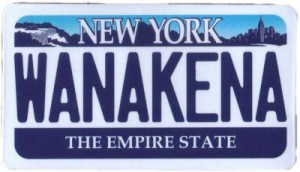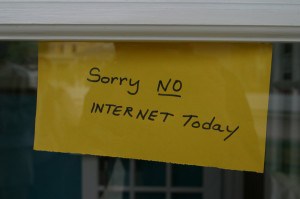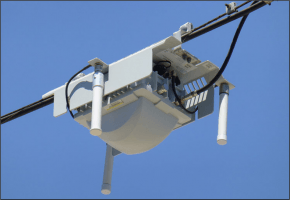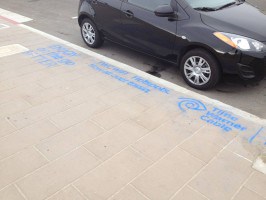 Greenwich Village business owner Louis Wintermeyer has spent the last three months without phone or broadband service from Verizon Communications.
Greenwich Village business owner Louis Wintermeyer has spent the last three months without phone or broadband service from Verizon Communications.
“It is hard to believe it has gone on this long,” Wintermeyer told the New York Post. “You feel like you’re in Bangladesh here. I mean we’re in the West Village!”
Across Manhattan, and well into upstate New York, Verizon customers who start experiencing landline problems often keep experiencing them for weeks or months on end.
Wintermeyer couldn’t wait that long — he relocated his car-export company to his Rockland County home. Another Verizon customer in the same building — the Darling advertising agency, experienced intermittent outages adding up to 10 weeks of no service since February.
“We really sounded like amateurs,” Jeroen Bours, president of the Darling advertising agency told the Post. “We would be in a conference call, and all of a sudden the call would go. It just doesn’t really make a good impression.”
In the Adirondack hamlet of Wanakena, when the rain arrives, Verizon service leaves a lot to be desired.
One person’s phone may be working but the one next door will be completely out of service or crackly at best, according to local residents.
“It’s almost comical,” Ranger school director Christopher L. Westbrook told the Watertown Daily Times. “It’s so bizarre because some phones will be working while others are not.”
[flv]http://www.phillipdampier.com/video/WWNY Watertown Phone Situation Improving Officials Say 8-3-12.mp4[/flv]
A fiber optic line cut near Cicero, N.Y. in early August disrupted phone and cellular service from Verizon across the North Country. WWNY in Watertown covers the event. (1 minute)
One Adirondack Park Agency commissioner who lives in the area says he has been without a phone 15 times in the last two months. Unfortunately for North Country residents, cell phone service is often not an option, because carriers don’t provide reliable wireless service in the region.
 Local businesses cannot process credit card transactions, broadband service goes down, and a handful of privately-owned pay phones out of service for months have been abandoned by their independent owner because of the ongoing service problems.
Local businesses cannot process credit card transactions, broadband service goes down, and a handful of privately-owned pay phones out of service for months have been abandoned by their independent owner because of the ongoing service problems.
Verizon repair crews come and go, but affected customers report a real reluctance by Verizon technicians to complete repairs once and for all.
“The permanent fix is not happening,” says Angie K. Oliver, owner of the Wanakena General Store.
Bours said one Verizon technician told him the company no longer cares about its older copper wire landline business. Rural residents upstate sense the company has little interest spending money on deteriorating infrastructure.
Some Wanakena residents suspect Verizon has thrown in the towel in St. Lawrence and Franklin counties, where independent Nicholville Telephone subsidiary Slic Network Solutions is constructing over 800 miles of fiber optic cable and operates a fiber to the home broadband and phone service.
[flv]http://www.phillipdampier.com/video/WWNY Watertown Lewis County Phone Service Restored 8-20-11.mp4[/flv]
Last summer, Lewis County suffered a similar widespread phone service outage that left businesses and homes without service for days. WWNY says Barnes Corners was hardest hit. (1 minute)
Verizon spokesman John J. Bonomo blamed lightning strikes for the problems in Wanakena, but said the cable serving the area was intact and should not be responsible for service outages.

Gray
Near Syracuse University, some businesses and residents were without phone service for nearly two weeks in June.
The largest outage began when more than 150 customers around SU lost service after a storm. More than a week later, nearly two dozen customers were still without service, including the 4,000 member U.S. Institute for Theater Technology.
A damaged underground phone cable was deemed responsible, but repairs were slow.
Earlier this month, Massena town supervisor Joseph Gray fired off a letter to the deputy Secretary of State after a major Verizon line north of Syracuse was damaged, cutting off landline and cell phone service throughout Jefferson and St. Lawrence counties.
“I would have called your office to speak with you directly, but I couldn’t because our telephone service was unavailable,” Gray wrote. “Since I became supervisor of the town of Massena just over two and a half years ago, on at least three different occasions telecommunications in the entire North Country has been thrown into chaos because a Verizon fiber optic cable was cut 150 miles from here. Many of us found our emergency services, business, residential, and cellular telephone service interrupted, not to mention disabled credit card machines, facsimile machines and Internet service in some cases.”
Gray criticized the Public Service Commission for allowing Verizon to operate without service redundancy in the state, providing backup facilities if a fiber cut occurs.
 “As a result, the Public Service Commission (which perhaps should be given a different name if my experiences with them is typical), has done nothing to address this dangerous situation and, more incredibly, appears unwilling to acknowledge that the problem exists,” Gray said.
“As a result, the Public Service Commission (which perhaps should be given a different name if my experiences with them is typical), has done nothing to address this dangerous situation and, more incredibly, appears unwilling to acknowledge that the problem exists,” Gray said.
Attorney General Eric Schneiderman blasted Verizon’s poor landline service in a petition sent to the New York State Public Service Commission. Schneiderman called Verizon’s service unacceptable in New York, with customers forced to wait inordinate periods to get service restored.
“Verizon’s management has demonstrated that it is unwilling to compete to retain its wireline customer base, and instead is entirely focused on expanding its wireless business affiliate,” said Schneiderman’s office.
Schneiderman’s office filed evidence in July that Verizon was undercutting its landline business in New York and diverting money for other purposes:
- Verizon’s claim it had spent more than $1 billion in investments to its landline network was misleading: Roughly three-quarters of the money was actually spent on transport facilities to serve wireless cell sites and ongoing spending on FiOS in areas already committed to get the fiber-to-the-home service;
- Verizon investment in landlines has declined even faster than its line losses. The dollars per access line budgeted for 2012 is one-third less than the investment for the 2007-2009 period;
- In just a five month period, 19.5% of the company’s 4.3 million customer lines in New York required repair. This means every Verizon customer will need an average of one repair every five years;
- Verizon’s complaint rate with the PSC has exceeded the PSC’s own limit for good service every month since June 2010. Most recently, Verizon exceeded the limit by more than double the threshold;
- Verizon’s agreement with the Commission establishes two classes of customers: “core” customers (8%) that qualify for enhanced repair service because they are elderly and/or have medical problems and non-core customers (virtually everyone else). The Commission only enforces service standards and repair lapses with “core” customers, which are required to have out of service lines restored within 24 hours 80% of the time. Verizon is free to delay other repairs indefinitely without consequence.
- The PSC has already fined Verizon $400,000 earlier this year for poor service from October-December 2011.
[flv]http://www.phillipdampier.com/video/WWNY Watertown Gray Phone Disruptions Perilous Flaw 8-7-12.mp4[/flv]
WWNY talks with Massena town supervisor Joseph Gray, who has launched a campaign to force Verizon to develop a plan to better handle outages in northern New York. (2 minutes)
 CenturyLink is having a tough time competing against Tacoma, Wash.-based Click! Network, so the phone company hired third party vendors who are spreading lies about its community-owned competitor.
CenturyLink is having a tough time competing against Tacoma, Wash.-based Click! Network, so the phone company hired third party vendors who are spreading lies about its community-owned competitor. A complaint will be filed with the Office of the State Attorney General against CenturyLink accusing them of an apparent violation of state law – RCW 19.86.020 – which states, “Unfair methods of competition and unfair or deceptive acts or practices in the conduct of any trade or commerce are hereby declared unlawful.”
A complaint will be filed with the Office of the State Attorney General against CenturyLink accusing them of an apparent violation of state law – RCW 19.86.020 – which states, “Unfair methods of competition and unfair or deceptive acts or practices in the conduct of any trade or commerce are hereby declared unlawful.”

 Subscribe
Subscribe










